When it comes to 5G data speed, Android handsets beat out the Apple iPhone
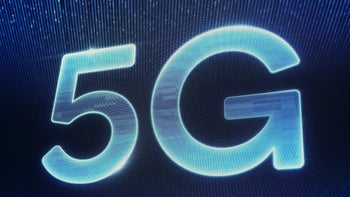
According to internet speed test firm OpenSignal, the 5G Apple iPhone 12 series is lagging behind Android phones when it comes to data speed. Of the 25 fastest 5G enabled smartphones in the U.S., 60% of those models belong to Samsung. In addition, the Samsung Galaxy S21 5G sports the highest average U.S. download data speed, and Apple iPhone users are experiencing the largest jump in data speed from 4G to 5G (2.3x). For example, the average data speed generated by an iPhone 12 model in an LTE signal area is 18.9 Mbps compared to 44.5Mbps in an area covered with 5G signals.
LG's average download speed from 4G to 5G increased 1.7x (28.9Mbps in an LTE area and 47.9Mbps in 5G areas). Samsung's 1.6x jump between 4G and 5G (34Mbps for 4G vs. 54Mbps for 5G) places it third with OnePlus and Google tied with a 1.4x difference between their 4G and 5G speeds. OnePlus' average speed running in a 4G network was 38.4Mbps with a 53.1Mbps reading in a 5G zone. The Pixel averages a 4G data speed of 38.6Mbps for 4G and a 52.2Mbps data speed for 5G.
- iPhone 13 price, release date, features, and specs
OpenSignal notes that when it comes to 4G data, older iPhone models relied on Intel's 4G modem chips. For 5G data, Apple has turned to the same Qualcomm Snapdragon X55 5G modem chip used by many 5G Android phones since the beginning of 2020. This is why the difference between Apple's 5G download data speed and Samsung's 5G download data speed is only 18%. With 4G data speeds, Google and OnePlus handsets have data speeds twice as fast as the iPhone. It also should be noted that all four 5G iPhone models include support for the incredibly fast mmWave version of 5G. Next year's iPhone 13 series is expected to use the Snapdragon X60 5G modem built using the 5nm process node by Apple rival Samsung. Eventually, Apple hopes to use its own in-house 5G modems for the iPhone.
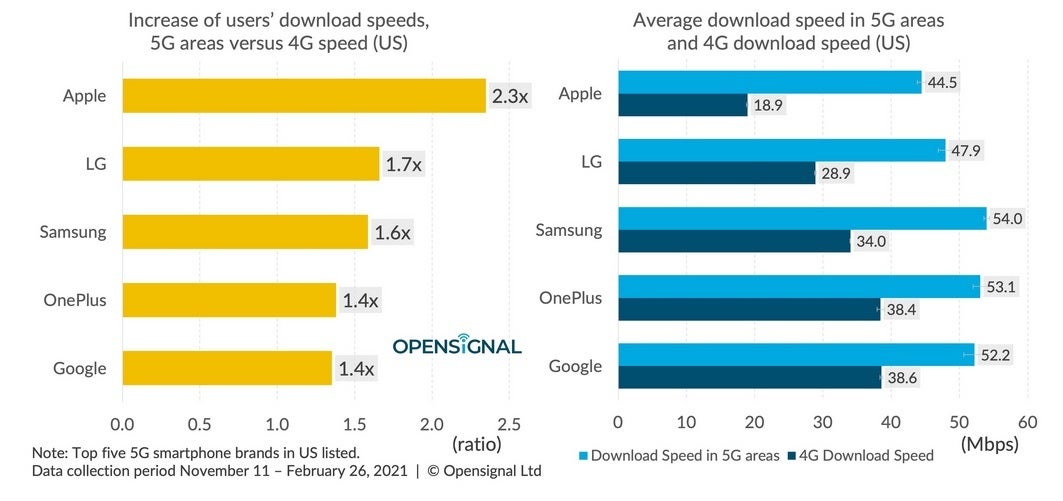
he Apple iPhone 12 series has the biggest jump in download data speed between 4G and 5G service
We've already pointed out that the Samsung Galaxy S21 5G has the fastest 5G download data speed of the top 25 5G phones in the states; this phone carries a download data speed of 56Mbps. The next fastest 5G model in the states, the TCL Revvl 5G, has a download data speed of 49.8Mbps. The other names in the top five include the OnePlus 8T+ (49.3Mbps), the Samsung Galaxy Note 10+ 5G (48.5Mbps), and the Samsung Galaxy 21 Ultra 5G (47.5Mbps). Included in the list of the top 25 zippiest 5G phones are three foldables (Samsung Z Flip 5G #10, 44.7Mbps; Motorola Razr 5G #12, 44Mbps; Samsung Z Fold 2 5G #23, 39.4Mbps) and one Dual Screen model (LG Wing 5G #22, 40.1Mbps).
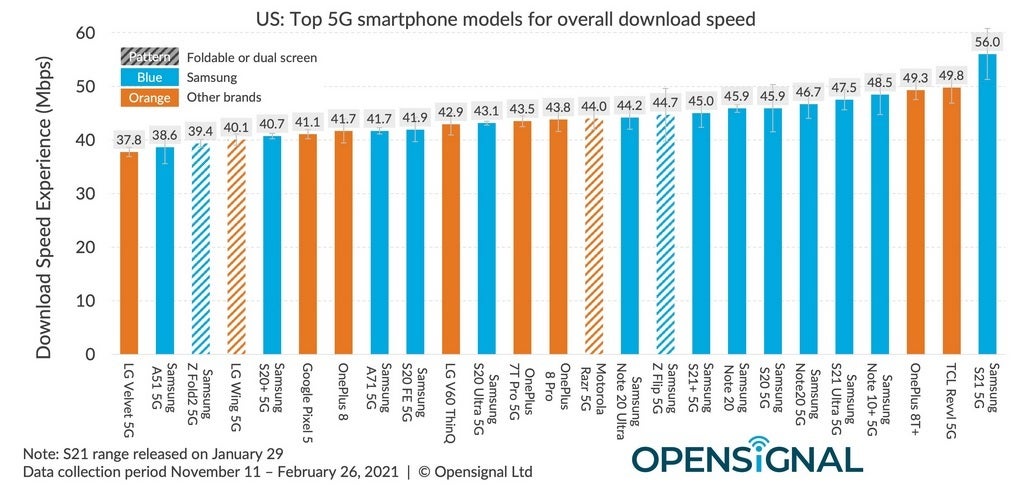
The Samsung Galaxy S21 5G is the fastest 5G phone in the U.S.
OpenSignal expects to see Apple offer 5G capabilities for an upcoming iPad Pro tablet. It notes that the download data speed on the 5G iPhone 12 Pro is currently 36% faster than the 4G data speeds on the most recent iPad Pro. "With a new 5G-capable SoC, future iPad Pro users should see speeds at least as fast as iPhone 12 users," says OpenSignal. Another graph in OpenSignal's report shows how download speeds for U.S. iPhone models has increased rapidly over the last few years. The iPhone 5s in 2013 had an average download data speed of 7.8Mbps. Over the last few years, the data speeds generally trended higher peaking at 36.9Mbps with the iPhone 12 Pro. Still, the 5G download data speed of the iPhone 12 Pro fell short of the LG Velvet 5G's 37.8Mbps, which was number 25 on OpenSignal's Top 25 5G phones based on the average data speeds in the U.S.
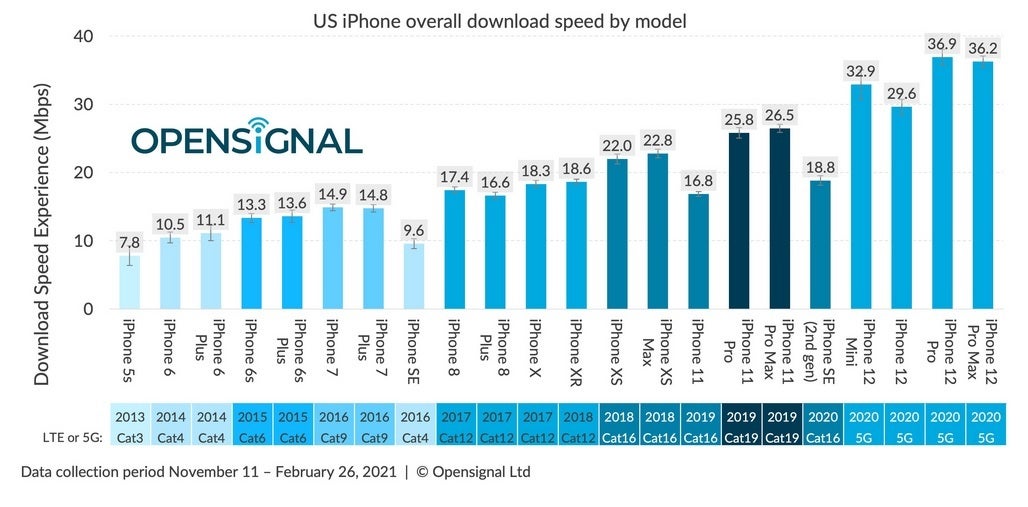
Apple iPhone data speeds have trended higher throughout the years
The 5G speed race will get more competitive says OpenSignal. "The smartphone speed race will accelerate in 2021. In the U.S., the arrival of new spectrum later this year (the mid-band C-band recently auctioned off for a record breaking $81 billion in bids) will add new capacity which should boost speeds. Carriers are continuing to expand the reach of their 5G service and deploying new parts of the 5G standard such as 5G standalone access. As the U.S. market changes, and 5G technology evolves, OpenSignal will continue to analyze how different devices compare on mobile experience."

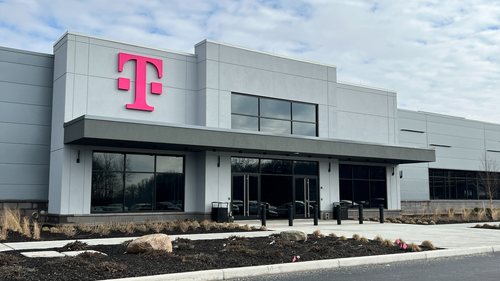

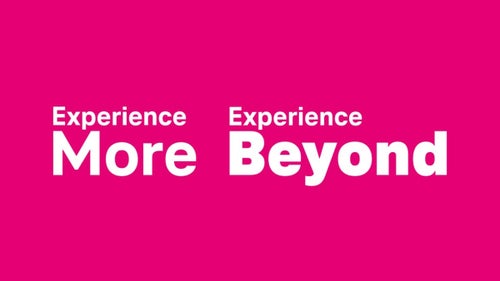
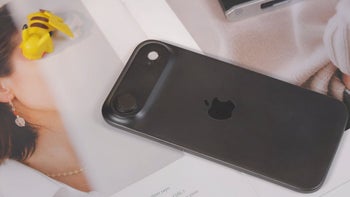
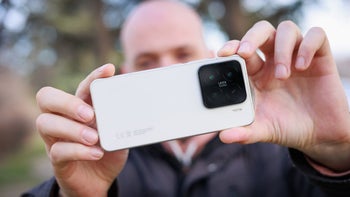
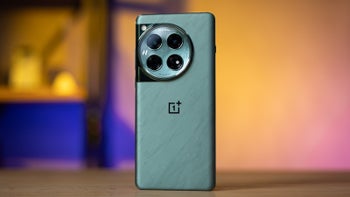
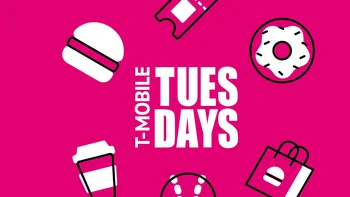
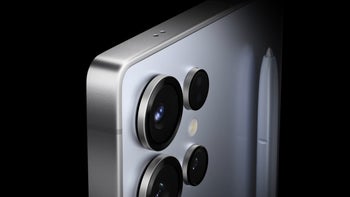
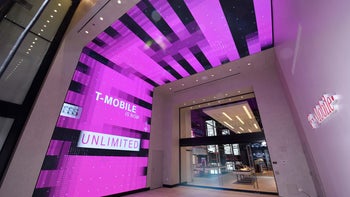
Things that are NOT allowed: